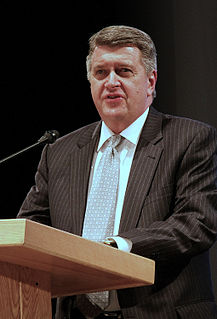A Quote by Mason Cooley
Skepticism does not preserve us from foolhardy deeds.
Related Quotes
We must remember that much spiritual growth does not occur suddenly but rather through time and experience. The encouraging message of the gospel is that God does not often require us to perform sensational or extraordinary deeds but rather to try to do better today than we did yesterday. He is mindful of our desires, our determination, and our direction as well as of our deeds.
For, owners of their deeds (karma) are the beings, heirs of their deeds; their deeds are the womb from which they sprang; with their deeds they are bound up; their deeds are their refuge. Whatever deeds they do-good or evil-of such they will be the heirs. And wherever the beings spring into existence, there their deeds will ripen; and wherever their deeds ripen, there they will earn the fruits of those deeds, be it in this life, or be it in the next life, or be it in any other future life.
Attacking a provincial lord in his manor house, surrounded by guards...Honestly, Kell, I'd nearly forgotten how foolhardy you can be. "Foolhardy?" Kelsier asked with a laugh. "that wasn't foolhardy - that was just a small diversion. You should see some of the things I'm planning to do! Dockson stood for a moment then he laughed too. "By the Lord Ruler, it's good to have you back, kell! I'm afraid I've grown rather boring during the last few years" "We'll fix that" Kelsier promised.
Creationists argue that natural selection is only a negative process, and therefore cannot create anything. Chopra argues that skepticism is only a negative process, and therefore does not lead to knowledge. Both are wrong for the same reasons. They ignore the generation of diversity and new ideas upon which natural selection and skepticism acts. Weeding out the unfit is critical to both - natural selection allows evolution to proceed, and skepticism allows science to advance.
To believe that He will preserve us is, indeed, a means of preservation. God will certainly preserve us, and make a way of escape for us out of the temptation, should we fall. We are to pray for what God has already promised. Our requests are to be regulated by His promises and commands. Faith embraces the promises and so finds relief.




































